Harry S Truman died on Dec. 26, 1972, at 88. The next day, Jake McCarthy, a news columnist for the Post-Dispatch, wrote this:
Most people of age know precisely what they were doing when heard about some major events of our time — Pearl Harbor, V-E Day, Hiroshima. The assassination of John F. Kennedy. The death of Franklin D. Roosevelt, President for 13 years, which had spanned all but six years of my own life up to that day.
I was in sick bay on the island of Guam when that happened, bathing my athlete's foot in some useless red liquid. A corpsman whispered something to the Navy doctor and his lace went blank. "Migawd," we all said. Plain little Harry Truman of Missouri was President.
But he showed us guts from that day on, in some old-fashioned American machismo way, even through the lingering death watch that ended yesterday, 27 years deeper into human history.
People are also reading…
Those 27 years haven't helped us much along toward man's dream of love and brotherhood, or his longing for peace. But Harry Truman was anchorman in our race to survival in the nuclear age. He had some kick left all the way to the finish line.
I never met Harry Truman but he was the singular political figure in my own evolution toward awareness. I cheered, as many others did, when the first atomic bomb was dropped, because at Pacific Fleet headquarters, where I was stationed, I had helped type plans for the invasion of the mainland of Japan. It is still a fearsome thought, the casualties that would i have resulted on both sides, and far fewer men — perhaps myself included — would have reached middle age.
Later I was to agonize, as have many Americans, about the holocausts of Hiroshima and Nagasaki, and search my soul for the answer to that dilemma. So I never doubted the awesome courage it took for that ordinary man from Missouri to make the lonely decision that would change the course of human history.
The world had the willies about nuclear war in those days, and when the Korean War began, I was four years out of service. Maybe that's why some of us cheered Harry Truman's concept of limited war in a nuclear age. And his dumping of the pompous Gen. Douglas MacArthur, whom nobody on the staff of the silent hero, Adm. Chester W. Nimitz, could tolerate, only a few years before. Harry Truman may have been the last President to exercise what was once a cherished American proposition — civilian control over the military.
I cheered Harry Truman over those things. I'm not sure why I had changed by the time the Vietnam involvement began, except that it seemed so terribly different to me by then. We began by messing around in a South Vietnamese civil war to save some investments, and just got hung up. It wasn't neat and clear cut, as Harry Truman always seemed to be. Nobody was telling us the truth any more. Maybe not even thinking it.
Truman captured something in the American spirit because he was an average Joe who didn't flinch from staggering odds, and he said what he meant. It's been a long time since the average American could really identify with his President. Truman could threaten to punch a reporter for criticizing his daughter's voice, and nobody feared he was unbalanced.
We didn't mind a President who cussed, or drank bourbon and branch water, such a relatively short time ago. Yet we feared Senator Edmund Muskie because he wept over an affront to his wife. And tore up Senator Tom Eagleton because he had the good sense to see a doctor about his nerves.
After Harry Truman, we have had a general, a Massachusetts millionaire, a Texas millionaire, and a Californian who became one. We've had FDR, HST, Ike, JFK and LBJ, and now Richard M. Nixon, who prefers to be called The President. You couldn't yell, "Give 'em hell, Harry," to any one of them except one.
That's a pretty good measure of where we've come in those years. Harry Truman bridged, the gap for many of us, through our national adolescence from pioneer nation, which believed wars were for liberty, to an interventionist and imperialist country, which many other peoples think of today as the world's bully.
Harry Truman was America's little man who made it, without tricks. We've lost something beautiful about the American dream since his time. It would be too bad if he were the last of the plebeians.
McCarthy died in 2000, at 74.







